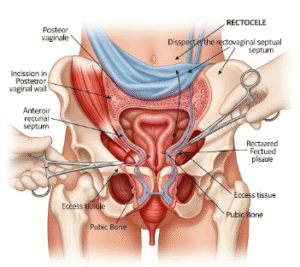Overview
Dyslexia is a specific learning disorder that primarily affects reading, writing, and spelling abilities despite normal intelligence and adequate educational opportunities. It is a lifelong condition that usually becomes evident in childhood when a child struggles with language-related academic tasks. In South Korea, awareness of dyslexia has been increasing, and specialized educational programs, psychological assessments, and therapeutic interventions are now available to support children and adults with dyslexia.
What is Dyslexia?
Dyslexia is a neurological condition related to differences in how the brain processes written and spoken language. People with dyslexia may have difficulty identifying speech sounds and relating them to letters and words. It is not linked to intelligence, vision, or lack of motivation but rather to differences in brain function related to language processing.
Symptoms
Common symptoms of dyslexia include:
- Difficulty reading fluently and accurately
- Trouble recognizing common words by sight
- Difficulty spelling and writing sentences
- Confusion between similar letters (e.g., b and d, p and q)
- Struggles with learning new words and vocabulary
- Poor reading comprehension despite effort
- Slow progress in school despite normal intelligence
Causes
The exact cause of dyslexia is not fully understood, but it is believed to result from differences in brain structure and function. Factors include:
- Genetics: Family history of dyslexia or other learning disorders
- Neurological differences: Abnormalities in brain areas related to reading and language processing
- Environmental influences: Lack of early language stimulation may worsen the condition, though it does not directly cause dyslexia
Risk Factors
People at greater risk of developing dyslexia include:
- Children with a family history of dyslexia or reading difficulties
- Premature or low-birth-weight babies
- Children exposed to poor language development in early childhood
- Those with associated conditions such as ADHD or developmental language disorder
Complications
If not diagnosed or treated early, dyslexia can lead to:
- Academic struggles and frustration in school
- Low self-esteem and confidence
- Behavioral problems linked to school stress
- Limited career opportunities if reading/writing skills remain poor
- Anxiety or depression in adolescents and adults
Prevention
Although dyslexia cannot be fully prevented, early recognition and intervention significantly reduce its impact. Strategies include:
- Early screening for reading difficulties in preschool or kindergarten
- Encouraging reading habits and language-rich activities at home
- Providing specialized support and tutoring for at-risk children
- Close collaboration between parents, teachers, and medical professionals
Treatment Options in Korea
South Korea provides a range of supportive educational and medical approaches for dyslexia management:
Diagnosis:
- Psychological and educational assessments by clinical psychologists and educational specialists
- Standardized language and reading tests to identify specific deficits
Educational Interventions:
- Specialized reading programs focusing on phonics, decoding, and comprehension
- Multisensory teaching methods (visual, auditory, and tactile learning)
- Individualized tutoring and remedial classes in schools
- Use of assistive technologies such as text-to-speech software
Medical & Psychological Support:
- Speech and language therapy for children with associated language difficulties
- Counseling and psychotherapy to address emotional challenges
- Treatment of coexisting conditions such as ADHD, if present
Supportive Care:
- Parent education programs to help families support children at home
- School accommodations such as extended time for exams, audio learning tools, or modified assignments
- Community-based support groups and awareness campaigns promoting inclusivity
South Korea’s education and healthcare systems are increasingly recognizing dyslexia as a significant learning disorder, ensuring that students receive the support they need for academic success and improved quality of life.













